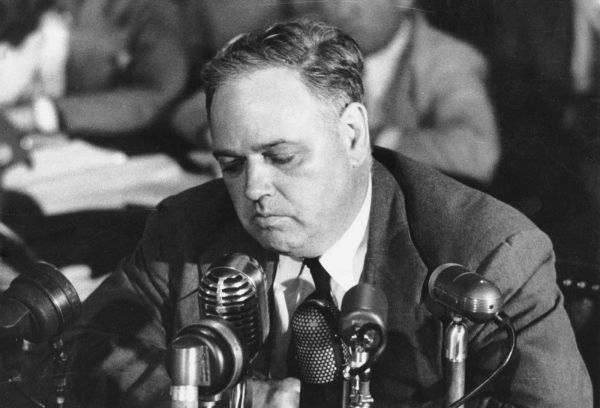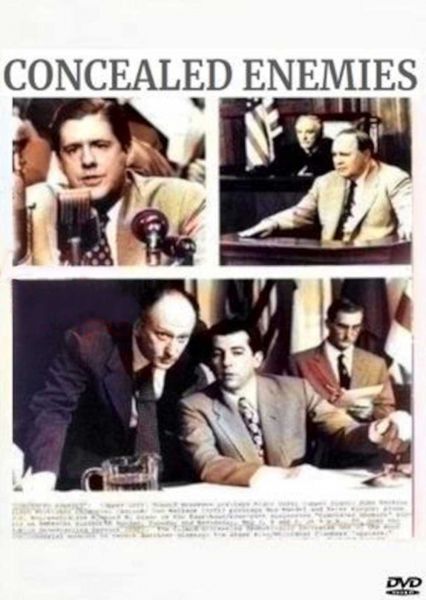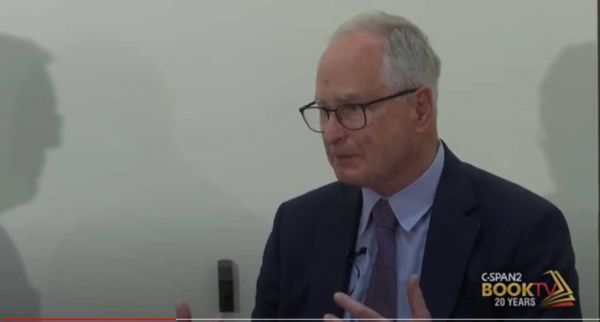The Hiss Case After Putin
More than any other event in Post-war America, except for the theft of the atom bomb, the Alger Hiss Case fueled fears about Soviet espionage, enabled by American communists, and ushered in the McCarthy Era and the Anti-Communist Witch Hunts; but while the Hollywood vaults abound with films exposing McCarthy and the Witch-hunts, they have released almost nothing about Hiss Case itself. That ticks me off to no end.
As far as I know, no movie studio nor television network has ever made a substantial film about the Alger Hiss Case, nor Hiss's accuser Whittaker Chambers, except for a tendentious docudrama titled Concealed Enemies, directed by Jeff Bleckner, starring Edward Herrmann, and released by Public Broadcasting in 1984. Perhaps, with the return of the "Evil Empire," via Vladimir Putin, film-makers or TV networks will give viewers a more intelligent take on the Hiss Case than Concealed Enemies does. Bleckner makes the film a tedious exercise in futility, because he gives viewers almost nothing in the way of factual evidence about the Hiss's guilt. Hopefully, it will be a cold day in hell before anyone tries that again.
Film-critic Fox Butterfield writes in the New York Times, "Concealed Enemies does not provide any pat answers to whether Mr. Hiss was guilty or whether his accuser Whittaker Chambers framed him."
Butterfield really means that Concealed Enemies wastes the opportunity to inform the public about the Hiss Case. Most viewers don't want "pat answers." They want the facts of the case, and neither the film, nor Butterfield's review gives them that. He wastes 1200 words telling viewers that it is useless for them to try to determine Hiss's guilt or innocence. He just innoculates his readers into magnanimous ignorance. "To this day, the case is considered far from closed in some quarters and still stirs partisan passions among both liberals and conservatives."
I admit I feel some passion about the Hiss Case, and Concealed Enemies and Butterfield frustrate the hell out of people like me who hate their deception.
Butterfield says something that verges on disengenuous: "The makers of Concealed Enemies hope it surmounts such disputatiousness." I can hear his colleagues laughing as he read this review to them. In order to avoid partisan disputes, responsible docudramas should avoid making definitive statements. That's what Butterfield says. In effect, we should not pretend that we can understand the Hiss Case well enough to dispute his guilt or innocence. I say shame on the New York Times for this sham of a review! It makes Alger Hiss's innocence an article of faith; but the pertinent information on the Hiss Case has been available in a published form since the late 1970s.
I do not claim to believe in ghosts or UFOs. I cannot claim to have met the Lord God, or discovered the Fountain of Youth; but I do know about the Alger Hiss Case. The salient facts have declared his guilt for years! No matter how much Concealed Enemies or people like Fox Butterfield obfuscate it. Americans really need for film-makers or TV networks to revisit the Hiss Case, especially since the Evil Empire--which Hiss and others supported--has struck back.




